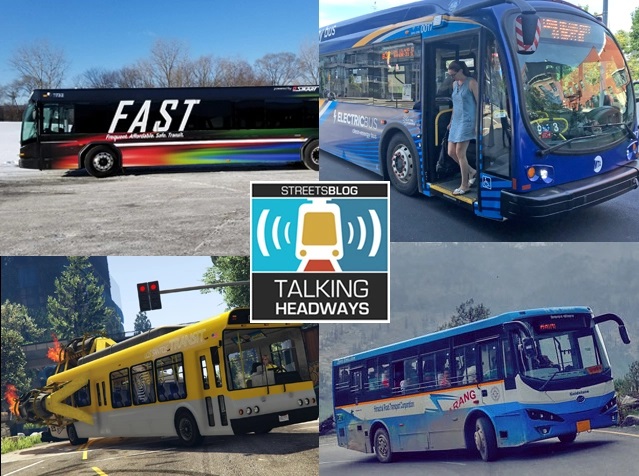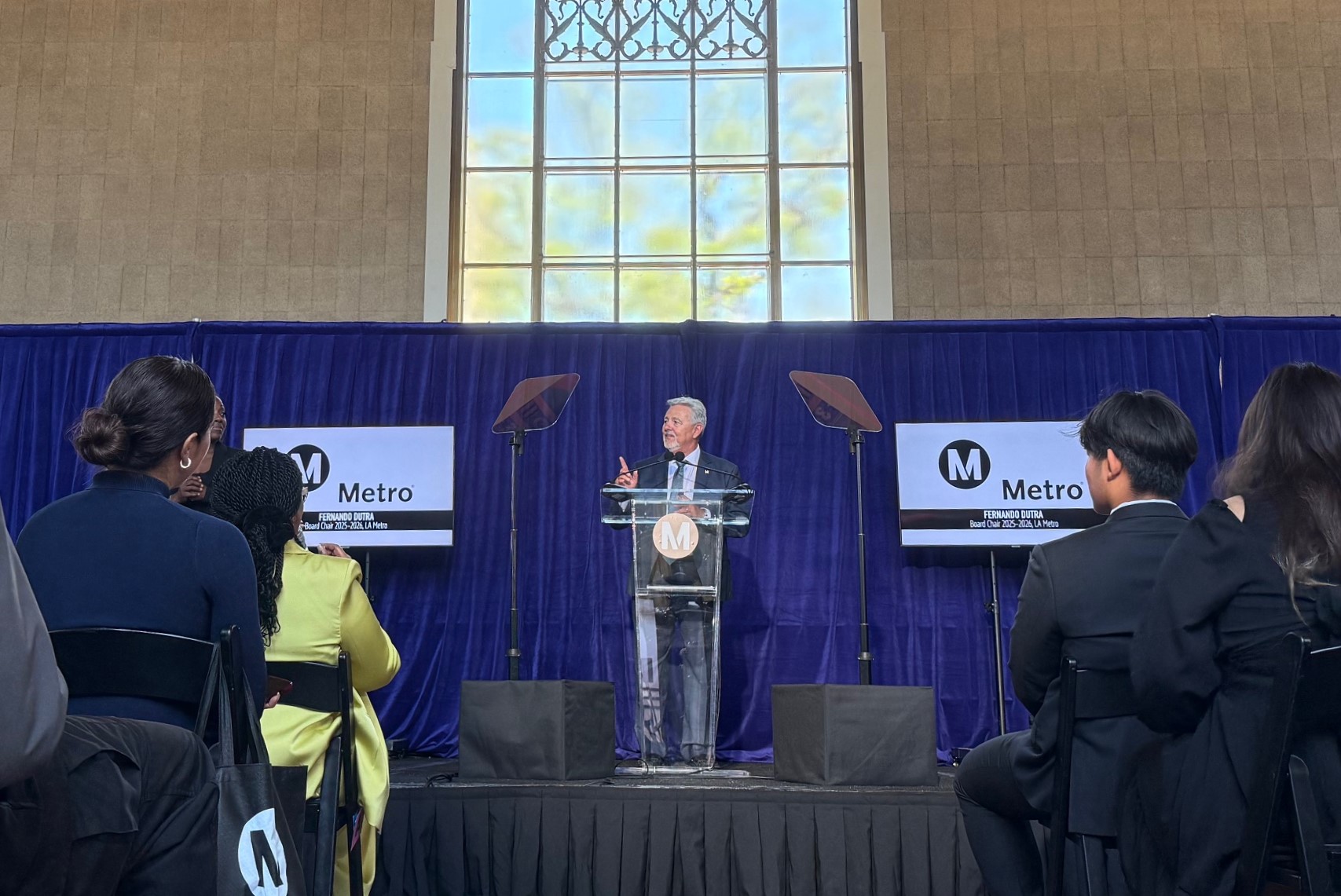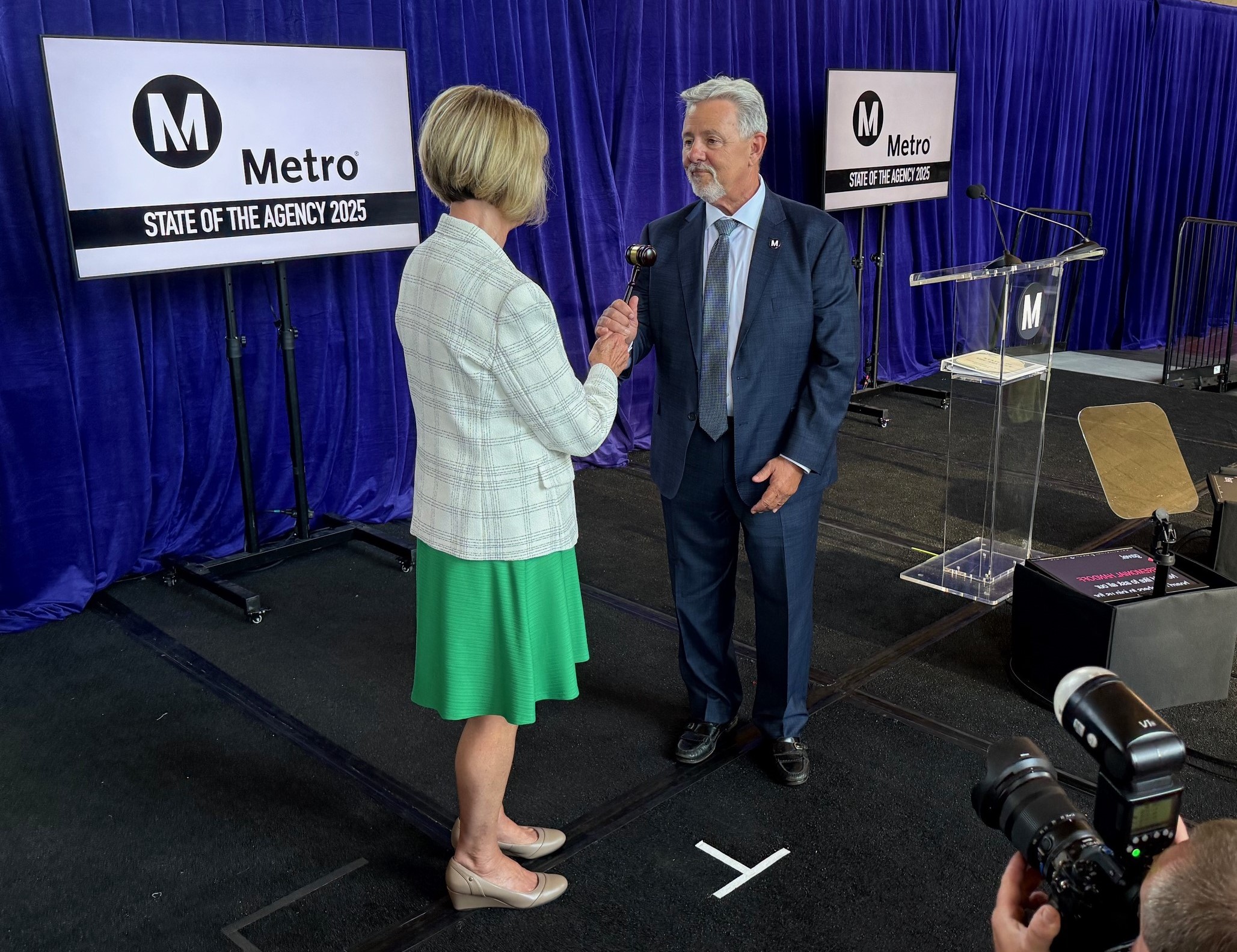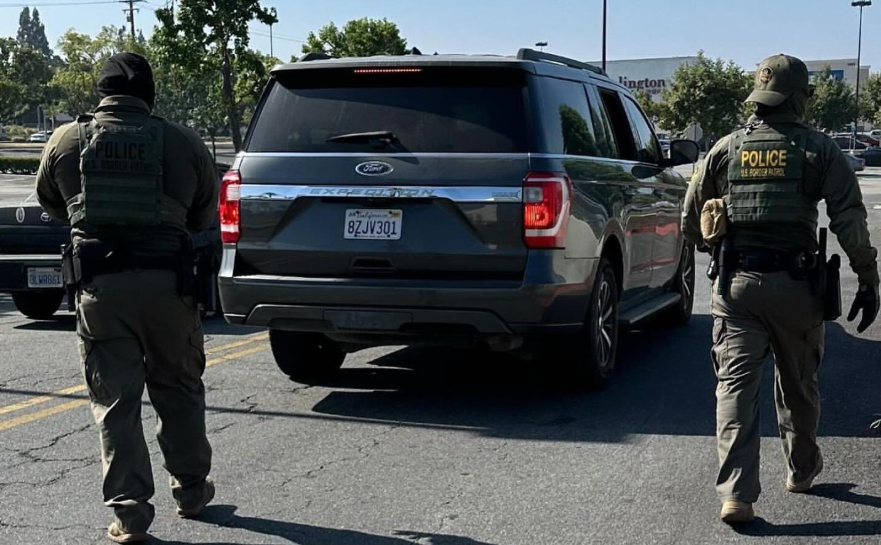This week, Colin Parent, executive director of Circulate San Diego, comes on the program to talk about his new report, "Fast Bus! How San Diego Can Make Progress by Speeding Up the Bus." That title should say it all!
You can listen to the conversation below or wherever your favorite podcasts are sold. Or you could read the full, unedited transcript by clicking here. Another option? Check out the edited transcript below. In any event, get on the bus!
Jeff Wood: A key frame you use in the report is the amount of time it takes to get to a destination on transit versus driving. Why is that really important to talk about when you’re talking about the bus?
Colin Parent: For a couple of reasons: one is that people choose to ride transit, whether it’s the bus or the trolley or the subway or what have you, largely based on how long it takes to get from where they are to where they want to go. And I’m not just saying like, "That’s how people ought to make decisions." This is what a lot of survey data says. We were able to point to survey data that TransitCenter put out. They do a survey every year or so. And very consistently, the speed of travel is what riders or potential riders consistently say is the most important factor for them about choosing whether or not to ride transit. And additionally, MTS the local transit agency in San Diego, has done some similar surveys and they find basically the same thing: it’s really just the amount of time that it takes to get from where they are to where they’re going that’s really important.
And so if we really want to take into account both the interests and the desires and the preferences of riders, which I think we ought to just from an equity perspective, we ought to listen to people who are riders. But in addition to that, if we have climate goals or revenue goals, ridership goals, all those other things, speed of the trip has to be one of the top priorities for how we make decisions about where we invest in public transit.
Jeff Wood: And so you can parlay that kind of into the discussion about frequency as well. Basically if you want more speed, you also want more frequency, so you’re not waiting at a stop, I imagine.
Colin Parent: That’s exactly right. And so there’s a lot of different ways to make the bus go faster, right? We call the report "Fast Bus," because that's very simple and easy to understand. But the goal isn’t necessarily to put like rocket engines on the back of the bus.
Jeff Wood: That’s what I think when I saw the report title. And then some reference to Ricky Bobby as well.
Colin Parent: Well, I guess, you know, if someone wants to invent the rocket bus, you know, I’m all ears.
But the core idea is that a regular bus can go pretty fast. The barriers to travel for someone’s commute time is not science or design of the bus, right? It’s all these other things: It’s how much traffic they’re stuck in, or, as you say, frequency. It’s how much time people have to wait. If someone has to wait for 20 minutes to get to their bus, but the bus ride is only 15 minutes, they’re not thinking of it as a 15-minute ride. They’re thinking of it as a 35-minute trip. So frequency is about reducing the amount of wait time so that their overall trip is lowered.
And same thing with a "bus only" lane. That lets the bus go faster, not because it suddenly has rockets on it, but because it can travel as fast as it’s actually designed to travel as opposed to being stuck in in traffic behind a bunch of other vehicles.







